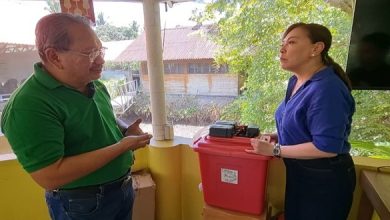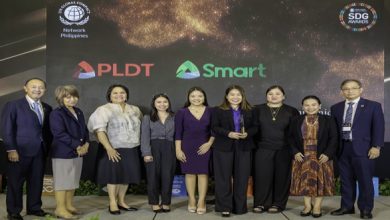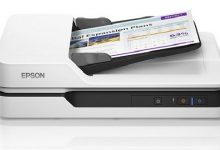Epson Unveils FY2023 Southeast Asia Sustainability Report, Highlighting Data-Driven Environmental and Social Initiatives
Epson, a global leader in technology, has released its FY2023 Southeast Asia Sustainability Report, reinforcing its dedication to sustainability, transparency, and corporate responsibility. The report, aligned with Global Reporting Initiative (GRI) standards, showcases Epson Southeast Asia’s (Epson SEA) comprehensive approach, expanding beyond environmental stewardship to include broader social and governance disclosures.

Aligned with Seiko Epson Corporation’s (Epson Global) Environmental Vision 2050, which targets becoming carbon-negative and underground resource-free, Epson SEA plays a pivotal role in driving the company’s sustainability efforts. In FY2023, Epson SEA disclosed its carbon emissions for the first time, setting a benchmark for future tracking. The company also enhanced employee engagement through improved hiring practices, whistleblowing channels, and expanded training opportunities.
Key milestones across the region include eliminating plastic bottles in corporate offices, launching a trash collection program in the Philippines and Malaysia, and implementing a structured data management system for sustainability tracking. Notably, Epson’s Singapore office achieved BCA Green Mark Gold certification, further emphasizing its commitment to green building standards. In collaboration with business partners like the World Wide Fund for Nature (WWF), Epson SEA supported energy-saving initiatives, such as the Earth Hour movement, as part of its broader sustainability strategy.
Localized Approach to Sustainability
Epson SEA tailors its sustainability initiatives to address specific environmental challenges across the region, driving localized solutions that contribute to the global push for a sustainable future. The company aligns its efforts with key United Nations Sustainable Development Goals (SDGs) to maximize its impact.
In the Philippines, several notable programs have been implemented:
- Corporate Waste Collection Program: Launched in Davao City in October 2023, this pilot program encourages dealers to recycle waste, including empty ink cartridges and packaging. The recycling facility Envirotech converts this waste into useful products like school chairs and household items. The program is set to expand to more cities in FY24.
- Adopt-a-School Program: Partnering with the Department of Education, Epson Philippines donated printers, projectors, and other equipment to public schools in Metro Manila. This initiative aims to enhance classroom engagement through interactive learning tools.
- Food Shed Project: In collaboration with WWF Philippines, Epson helped establish food shed farming systems in two barangays in Tarlac province. These food sheds provide a sustainable source of food and livelihood for the local community, incorporating climate-adaptive agriculture techniques.
First-Time Data Disclosure
This year marks a milestone as Epson SEA disclosed specific data aligned with GRI standards for the first time, setting the stage for increased transparency and accountability in future reports.
“As a leading technology company, we believe transparency in sustainability reporting is key to building trust and demonstrating our commitment to a sustainable future,” said Tan May Lin, Sustainability Task Force Leader, Epson Southeast Asia.
Leading the Way in Environmental Stewardship
Under Epson Global’s Environmental Vision 2050, Epson SEA has set ambitious goals for reducing greenhouse gas emissions through product innovation, facility upgrades, and purchasing Renewable Energy Certificates (RECs) to offset Scope 2 emissions.
In December 2023, Epson Global became the first Japanese manufacturer to achieve 100% renewable energy usage across all its sites, equivalent to 876 GWh of electricity annually in FY2022. Furthermore, Epson SEA fully transitioned from laser printers to inkjet printers in 2023, further supporting its sustainability objectives.
The next phase of Epson’s sustainability journey
In line with the GRI standards for 2021, Epson SEA has planned its sustainability roadmap, which outlines the company’s commitment to driving sustainability efforts. This includes:
- Achieve Sustainability in a Circular Economy: Embarking on the equivalent of BCA Green Mark certification for all other Epson facilities across SEA. This will involve retrofitting the facilities to improve overall building performance in terms of energy efficiency, lower water consumption, and better waste management.
- Advance the Frontiers of Industry: Continuing to harness the potential of digital technologies to streamline processes, optimize resource allocation, and enhance efficiencies across operations.
- Fulfil our Social Responsibility: Empowering employees through enhanced hiring practices and providing training opportunities. Epson SEA will also strengthen its engagement with the communities in which it operates.
“Building a sustainable future is an ongoing journey that demands constant effort and adaptation. Epson’s Sustainability Task Force was established to prioritize a data-driven approach, helping us more accurately measure our impact and fine-tune strategies in alignment with our global sustainability objectives. Our latest report highlights the progress we’ve made and emphasizes the crucial role of data in reaching our sustainability goals,” said Alvin Tan, Lead for Country Initiatives, Epson Southeast Asia.
Epson’s FY2023 Sustainability Report showcases the company’s advancements in reducing carbon emissions and driving broader environmental and social initiatives across its operations.
The complete sustainability report is available for download here.







